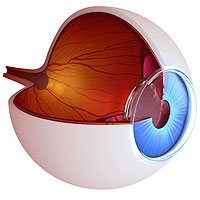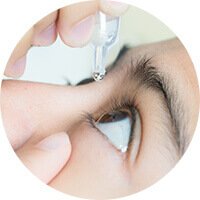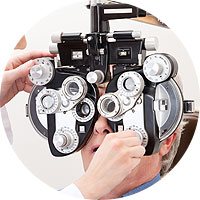
For many people, surgery is synonymous with pain. It conjures up images of sharp instruments and long, grueling recoveries.
While this may be the case for some more invasive surgeries, cataract surgery is straightforward. The procedure generally takes less than 15 minutes per eye to perform and uses numbing eye drops so you won’t feel any pain at all.
Cataract surgery is one of the single most predictable and effective surgeries you can undergo. Recovery involves taking it easy and giving your eyes time to recuperate.
But you will be able to resume much of your normal routine within weeks following the surgery. You may experience some mild pain at the beginning of your recovery process.
This is as the anesthetic wears off. Most patients see a sharp dropoff in pain within a day or two. After that, you should only experience occasional discomfort and itchiness that can be safely treated with eye drops. Keep reading to find out more about the cataract surgery recovery!
Recovery Tips and Timeline
Recovery Stage 1: Immediately After Surgery
As soon as your procedure is over, you will rest in the clinic for about 30 minutes before going home. This is when your eyes will be at their most vulnerable.
You will need to be extremely careful not to touch them or exert yourself by lifting heavy objects or performing stressful tasks. Relax and get some rest.
You will attend a follow-up visit to the clinic within 48 hours. This will allow your eye doctor to check your recovery progress and catch any issues before they become real problems.
Tips for Stage 1:
Schedule a ride ahead of the procedure, as you will not be able to drive yourself home. Be sure to wear the eye shield provided to you whenever you sleep.
This will prevent injury if you’re rolling around in your sleep. Use eye drops to cope with the dry eye you will likely experience during this time.
Rubbing your eyes at any point during recovery could have serious adverse effects.
Recovery Stage 2: The Next Few Weeks
After several days or up to a week, you will be able to add in more of your daily life. You will still need to avoid heavy lifting and getting things in your eye.
This includes water, so be careful when showering More follow-ups will be scheduled after a week.
Tips for Stage 2:
Keep your eyes closed when showering as best you can. You may begin to lightly exercise after at least a week with your eye doctor’s permission. Overly strenuous activity can cause eye pressure to spike, potentially damaging the eye.
Recovery Stage 3: Up to 3 Months
Patients are typically expected to recover from cataract surgery within 10 weeks, although time can vary. Towards the end of recovery, your life will likely be almost indistinguishable from your normal routine.
Keep in mind that your eye will still be quite sensitive. You will need to continue wearing protected sunglasses on bright days for up to a year following the procedure.
Tips for Stage 3:
Stay vigilant even though you are almost fully recovered. If at any point during recovery you experience serious side effects such as eye pain, nausea, rapidly deteriorating eyesight, flashes, and excessive discharge from the healing eye, contact us.
Cataract surgery should go very smoothly, and problems can be fixed, but treatment is more effective if it happens early.
Ready to consider having cataract surgery? Schedule your cataract screening at Eye Care Specialists in Scranton, PA now!

















